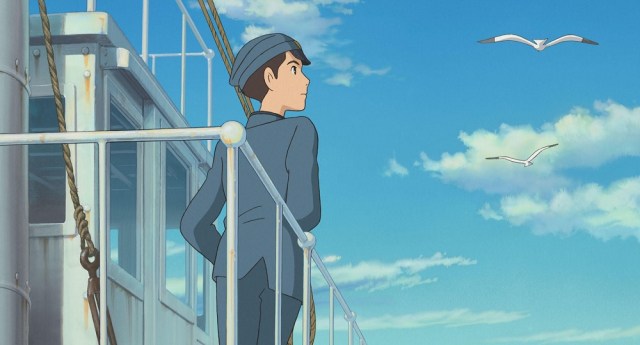
It’s been almost half a year since Studio Ghibli founder Hayao Miyazaki announced his retirement from animation direction, leaving a empty seat at the top of Japan’s pile of anime talent. Miyazaki himself has even voiced his concerns about whether or not his juniors in the industry will be able to replicate the results that Studio Ghibli achieved when he was at the helm.
With the medium in a state of uncertainty, Japanese telecom provider NTT Docomo asked fans which director they expected to pick up the banner of the Japanese animation industry. Their surprising answer? Hayao Miyazaki’s son, Goro.
To those who don’t regularly follow the anime industry, this may seem like the obvious choice. After all, doesn’t it stand to reason that the son of the anime’s most successful director has probably inherited some measure of the life philosophy, not to mention technical skills, of his father?
The reality, though, is far less simple. For most of his life, the younger Miyazaki was not involved in animation production, and the greatest success on his resume so far is from serving as designer and director not of a movie, but of the Studio Ghibli museum in Tokyo. The relationship between father and son has been regularly characterized as strained, and Goro’s directorial debut, 2006’s Tales from Earthsea, was reportedly made without any input or directorial support from Hayao.
The film was a critical and commercial flop almost from the moment it hit screens. Goro’s second (and so far most recent) turn as director came with From Up on Poppy Hill in 2011, for which his acclaimed father provided the script. The general consensus is that the film was a great improvement over Goro’s first directorial effort, but still nowhere near the quality of the films Ghibli put out during the elder Miyazaki’s heyday, even when he wasn’t the one sitting in the director’s chair.
▼ From Up on Poppy Hill
Nevertheless, nearly one in four poll respondents picked Goro Miyazaki as the individual they expect to lead the industry in coming years. His 2,136 votes put him far ahead of the second-place finisher, Evangelion’s Hideaki Anno, who received only 1,411.
It’s been a long time since Anno has directed anything other than installments in his highly personal Evangelion franchise, but his background in animating and recent stint voicing the lead in personal friend Hayao Miyazaki’s swansong The Wind Rises both attest to his comprehensive understanding of the myriad components that go into the finished anime product, something critical in a successful director.
Anno and Goro Miyazaki were the only directors to receive more than 1,000 votes, but third-place choice Mamoru Hosoda’s artistic stylings are arguably closer to Hayao Miyazaki’s than either the legend’s son’s or friend’s. Hosoda favors stories of children in lush rural landscapes, as seen in his films Summer Wars and Wolf Children.
Mamoru Oshii landed in the fourth slot. The former seminary student’s highly philosophical works have included Angel’s Egg, Ghost in the Shell, and the surprisingly deep Urusei Yatsura: Beautiful Dreamer. Oshii hasn’t directed an anime since 2008’s The Sky Crawlers, though, and his current project, a live-action adaptation of robot police story Patlabor, means it’s likely to be a while before he returns to a completely animated feature.
Rounding out the top five is Katushiro Otomo, best known as the creator, original manga artist, and director of Akira. Otomo isn’t twiddling his thumbs while waiting to see if or how the proposed Hollywood version of Akira pulls itself out of the quagmire it has worked itself into. Instead, he’s kept busy by recently directing a segment of the 2013 anthology Short Piece.
One thing all five of the top-rated directors have in common is an ability to reach audiences outside of the hardcore anime fan demographic. This may in fact be one reason why Goro Miyazaki topped the list by such a large margin despite his lack of proven hit making ability, especially when compared to the directors directly below him. Stop a random person on the street in Japan, ask them to name an anime director, and 95 percent will tell you, “Hayao Miyazaki.” Ask them to name another, and someone who’s still working, to boot, and you’ll see a lot more head scratching.
Hayao Miyazaki has transcended anime in the same way that Walt Disney transcended cartoons. He’s a household name with an undeniable cultural impact on Japan, and by association his studio, and his son who works for it, occupy a spot in people’s minds, even if they aren’t particularly passionate anime fans. Considering the lack of anything better than a lukewarm response to Goro’s films so far, and yet his overwhelming choice as the director people expect great things from, it’s hard to ignore the possibility that those polled simply couldn’t think of anyone else when trying to reconcile the contradictions.
Goro will get another chance to live up to those expectations, as well as step a bit further away from his father’s giant-sized shadow, with his upcoming adaptation of Ronia the Robber, which as a television series should help to reduce the direct comparisons between it and the works of the elder Miyazaki, who spent the last decades of his career directing feature films exclusively.
The rest of the prominent directors chosen in the poll were:
6. Makoto Shinkai (Voices of a Distant Star, The Garden of Words)
7. Yoshiyuki Tomino (Mobile Suit Gundam, Aura Battler Dunbine)
8. Gisaburo Sugii (Street Fighter II: The Animated Move, Arashi no Yoru ni)
9. Hiroyuki Morita (The Cat Returns, Bokurano)
10. Goro Taniguchi (Planates, Code Geass: Lelouch of the Rebellion)
11. Seiji Mizushima (Fullmetal Alchemist, The Slayers: Next)
12. Tsutomu Mizushima (Girls und Panzer)
13. Akiyuki Shinbo (Puella Magi Madoka Magica)
14. Yutaka Yamamoto (Fractale)
15. Keiichi Hara (Crayon Shin-chan, Doraemon)
16. Hiromasa Yonebayashi (The Secret World of Arrietty)
17. Junichi Sato (Aria)
18. Tatsuyuki Nagai (Princess Tutu)
19. Hiroyuki Okiura (A Letter to Momo)
See anyone up there you’re especially fond of and would tip for the anime throne?
Sources: Peachy, Goo
Images: Studio Ghibli

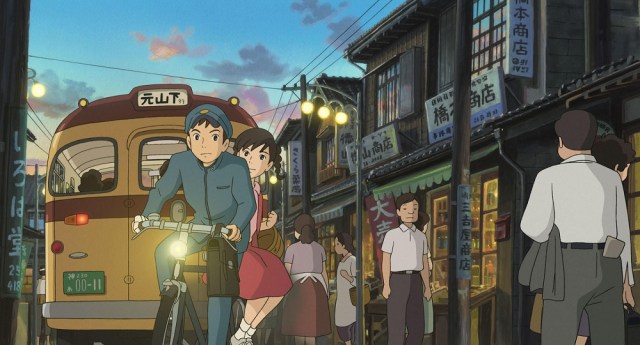
 Studio Ghibli is not Studio Goro – Hayao Miyazaki’s son denies being his father’s successor
Studio Ghibli is not Studio Goro – Hayao Miyazaki’s son denies being his father’s successor Hayao Miyazaki’s latest comeback is so that he can leave an anime behind for his grandson
Hayao Miyazaki’s latest comeback is so that he can leave an anime behind for his grandson Hayao Miyazaki gives interview on Earwig and the Witch, praises use of CG and son’s skills【Video】
Hayao Miyazaki gives interview on Earwig and the Witch, praises use of CG and son’s skills【Video】 What our anti-Goro Miyazaki reporter thought of “From Up on Poppy Hill”
What our anti-Goro Miyazaki reporter thought of “From Up on Poppy Hill” Ghibli reveals genre of Hayao Miyazaki’s next anime, and that it’s also working on new CG film
Ghibli reveals genre of Hayao Miyazaki’s next anime, and that it’s also working on new CG film Saitama is home to the best strawberries in Japan that you’ve probably never even heard of
Saitama is home to the best strawberries in Japan that you’ve probably never even heard of Japan has only one airport named after a samurai, so let’s check out Kochi Ryoma【Photos】
Japan has only one airport named after a samurai, so let’s check out Kochi Ryoma【Photos】 Survey finds that one in five high schoolers don’t know who music legend Masaharu Fukuyama is
Survey finds that one in five high schoolers don’t know who music legend Masaharu Fukuyama is Starbucks Japan adds new sakura Frappuccino and cherry blossom drinks to the menu
Starbucks Japan adds new sakura Frappuccino and cherry blossom drinks to the menu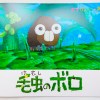 Boro the Caterpillar anime now showing at the Ghibli Museum in Tokyo 【SoraReview】
Boro the Caterpillar anime now showing at the Ghibli Museum in Tokyo 【SoraReview】 Tokyo Station’s perfect breakfast spot might just be this izakaya Japanese-style pub
Tokyo Station’s perfect breakfast spot might just be this izakaya Japanese-style pub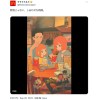 McDonald’s ad in Japan causes controversy overseas
McDonald’s ad in Japan causes controversy overseas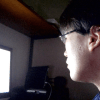 After eight years as a NEET, our reporter shares the one thing that helped him escape that life
After eight years as a NEET, our reporter shares the one thing that helped him escape that life Foreign tourists in Japan will get free Shinkansen tickets to promote regional tourism
Foreign tourists in Japan will get free Shinkansen tickets to promote regional tourism Japanese communities giving their skylines a spring clean and saying goodbye to power lines
Japanese communities giving their skylines a spring clean and saying goodbye to power lines The 10 most annoying things foreign tourists do on Japanese trains, according to locals
The 10 most annoying things foreign tourists do on Japanese trains, according to locals Starbucks Japan releases new sakura goods and drinkware for cherry blossom season 2026
Starbucks Japan releases new sakura goods and drinkware for cherry blossom season 2026 Is Sapporio’s Snow Festival awesome enough to be worth visiting even if you hate the snow? [Pics]
Is Sapporio’s Snow Festival awesome enough to be worth visiting even if you hate the snow? [Pics] Japan has trams that say “sorry” while they ride around town…but why?
Japan has trams that say “sorry” while they ride around town…but why? Tokyo Skytree turns pink for the cherry blossom season
Tokyo Skytree turns pink for the cherry blossom season Highest Starbucks in Japan set to open this spring in the Tokyo sky
Highest Starbucks in Japan set to open this spring in the Tokyo sky Japan’s new “Cunte” contact lenses aren’t pronounced like you’re probably thinking they are
Japan’s new “Cunte” contact lenses aren’t pronounced like you’re probably thinking they are Shibuya Station’s Hachiko Gate and Yamanote Line stairway locations change next month
Shibuya Station’s Hachiko Gate and Yamanote Line stairway locations change next month Yakuzen ramen restaurant in Tokyo is very different to a yakuza ramen restaurant
Yakuzen ramen restaurant in Tokyo is very different to a yakuza ramen restaurant Japan’s newest Shinkansen has no seats…or passengers [Video]
Japan’s newest Shinkansen has no seats…or passengers [Video] Foreigners accounting for over 80 percent of off-course skiers needing rescue in Japan’s Hokkaido
Foreigners accounting for over 80 percent of off-course skiers needing rescue in Japan’s Hokkaido Super-salty pizza sends six kids to the hospital in Japan, linguistics blamed
Super-salty pizza sends six kids to the hospital in Japan, linguistics blamed Starbucks Japan unveils new sakura Frappuccino for cherry blossom season 2026
Starbucks Japan unveils new sakura Frappuccino for cherry blossom season 2026 Take a trip to Japan’s Dododo Land, the most irritating place on Earth
Take a trip to Japan’s Dododo Land, the most irritating place on Earth Naruto and Converse team up for new line of shinobi sneakers[Photos]
Naruto and Converse team up for new line of shinobi sneakers[Photos] Is China’s don’t-go-to-Japan warning affecting the lines at a popular Tokyo gyukatsu restaurant?
Is China’s don’t-go-to-Japan warning affecting the lines at a popular Tokyo gyukatsu restaurant? Survey asks foreign tourists what bothered them in Japan, more than half gave same answer
Survey asks foreign tourists what bothered them in Japan, more than half gave same answer Japan’s human washing machines will go on sale to general public, demos to be held in Tokyo
Japan’s human washing machines will go on sale to general public, demos to be held in Tokyo Starbucks Japan releases new drinkware and goods for Valentine’s Day
Starbucks Japan releases new drinkware and goods for Valentine’s Day We deeply regret going into this tunnel on our walk in the mountains of Japan
We deeply regret going into this tunnel on our walk in the mountains of Japan Studio Ghibli releases Kodama forest spirits from Princess Mononoke to light up your home
Studio Ghibli releases Kodama forest spirits from Princess Mononoke to light up your home Major Japanese hotel chain says reservations via overseas booking sites may not be valid
Major Japanese hotel chain says reservations via overseas booking sites may not be valid Put sesame oil in your coffee? Japanese maker says it’s the best way to start your day【Taste test】
Put sesame oil in your coffee? Japanese maker says it’s the best way to start your day【Taste test】 No more using real katana for tourism activities, Japan’s National Police Agency says
No more using real katana for tourism activities, Japan’s National Police Agency says Hayao Miyazaki has secret concept for next anime, considers all animators his rivals, son says
Hayao Miyazaki has secret concept for next anime, considers all animators his rivals, son says Ghibli top dog calls Evangelion director “driving force of anime,” raises hopes for more Nausicaa
Ghibli top dog calls Evangelion director “driving force of anime,” raises hopes for more Nausicaa “I didn’t ask the old men for any advice” says director of Studio Ghibli’s first CG anime
“I didn’t ask the old men for any advice” says director of Studio Ghibli’s first CG anime “Let’s leave it to Goro” – The moment Hayao Miyazaki was truly convinced about Ghibli theme park
“Let’s leave it to Goro” – The moment Hayao Miyazaki was truly convinced about Ghibli theme park Evangelion creator says even Hayao Miyazaki anime don’t have enough Miyazaki
Evangelion creator says even Hayao Miyazaki anime don’t have enough Miyazaki Hayao Miyazaki talks on how working hard isn’t something to be proud of, not forgiving yourself
Hayao Miyazaki talks on how working hard isn’t something to be proud of, not forgiving yourself New Studio Ghibli anime coming this winter is first CG feature planned by Hayao Miyazaki
New Studio Ghibli anime coming this winter is first CG feature planned by Hayao Miyazaki Evangelion director calls Hayao Miyazaki “geezer” in anime commentary, says he broke his Walkman
Evangelion director calls Hayao Miyazaki “geezer” in anime commentary, says he broke his Walkman Hayao Miyazaki reveals the kind of otaku he hates the most
Hayao Miyazaki reveals the kind of otaku he hates the most Hayao Miyazaki makes rare video appearance to check out Ghibli Museum’s revamped cafe【Video】
Hayao Miyazaki makes rare video appearance to check out Ghibli Museum’s revamped cafe【Video】 Ghibli director Hayao Miyazaki gives up driving, donates beloved car to Ghibli Park
Ghibli director Hayao Miyazaki gives up driving, donates beloved car to Ghibli Park Beautiful cover artwork for Studio Ghibli tribute cover albums show Goro Miyazaki can draw too
Beautiful cover artwork for Studio Ghibli tribute cover albums show Goro Miyazaki can draw too Ghibli director Hayao Miyazaki shares secret to help improve your anime art skills
Ghibli director Hayao Miyazaki shares secret to help improve your anime art skills Studio Ghibli director Goro Miyazaki creates charity character T-shirt for Japan’s 24-Hour TV
Studio Ghibli director Goro Miyazaki creates charity character T-shirt for Japan’s 24-Hour TV